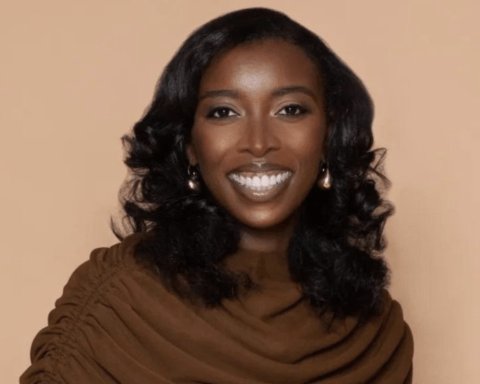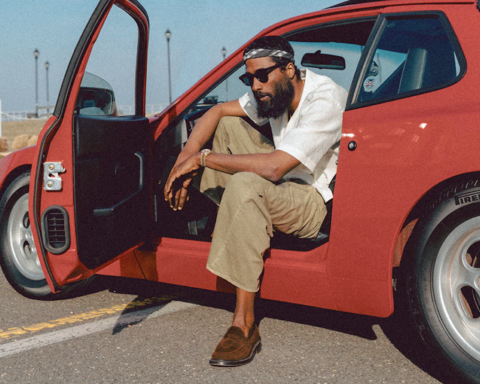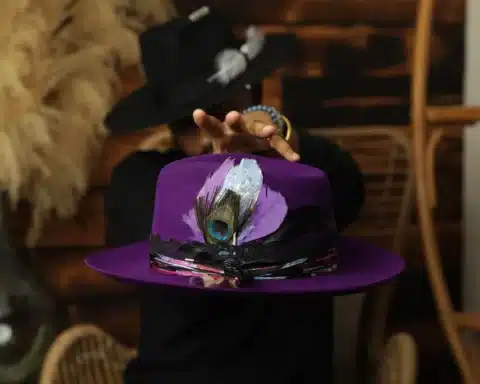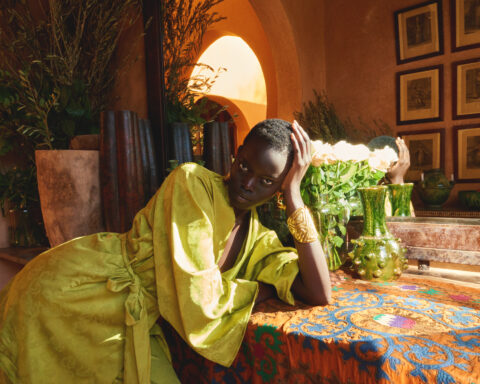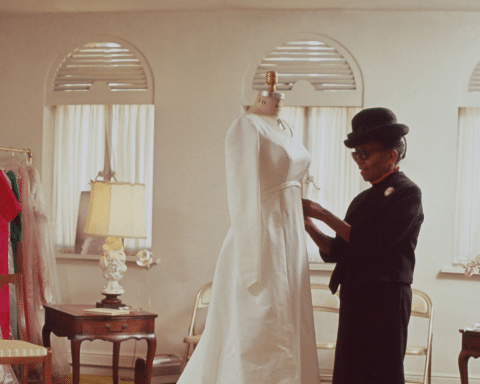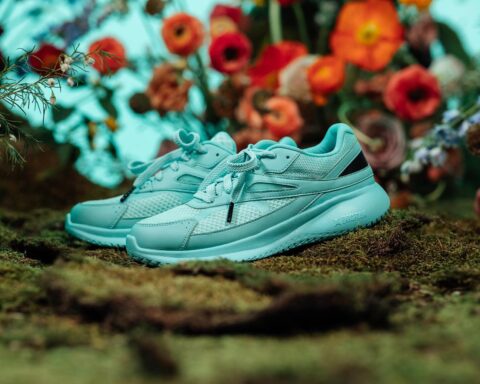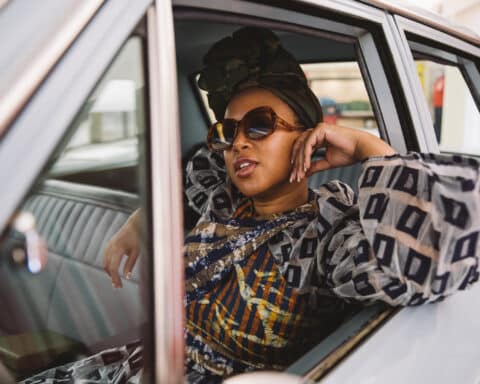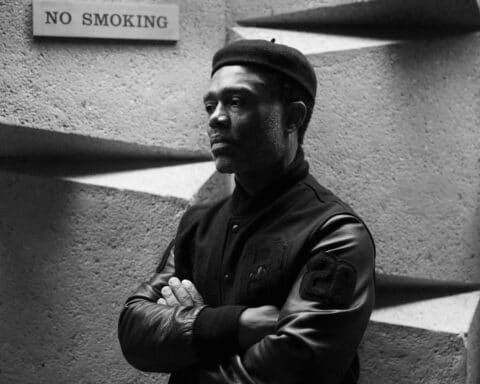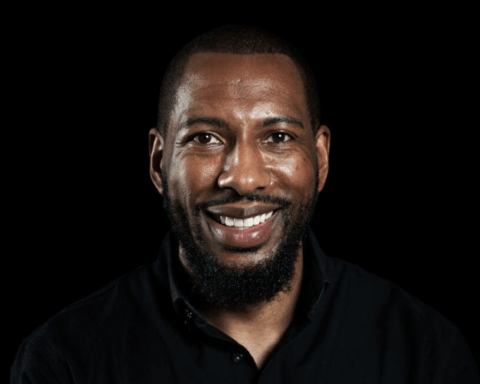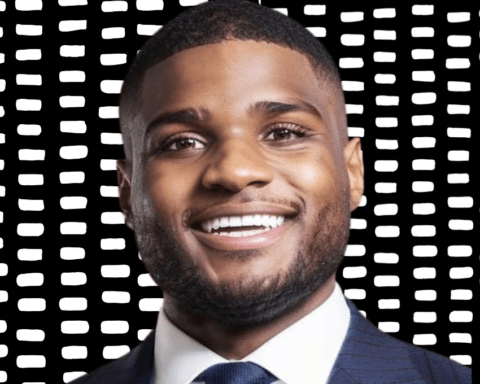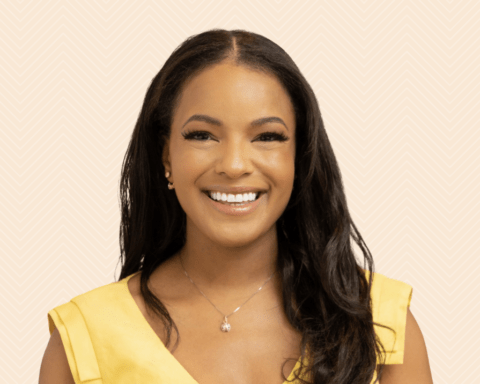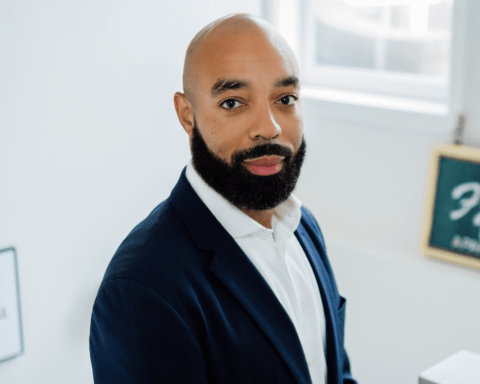Kinara Park Kids is a clothing line that promotes representation while celebrating the seven principles of Kwanzaa: Umoja (Unity), “KG” Kujichagulia (Self Determination), Ujima (Collective Work & Responsibility), Ujamaa (Cooperative Economics), Nia (Purpose), Kuumba (Creativity) and Imani (Faith).
We spoke to founder Noni Ervin to find out more about the brand and the inspiration behind it.
What inspired you to create Kinara Park Kids?
I was back-to-school shopping. And there it was…” the perfect shirt”.
It had these really cool silhouettes of kids–lots of kids. I was on my way to pick out one for my son, but as I moved closer, I saw that the silhouettes of kids (even though there were a lot of kids on the t-shirt), none of them looked like my son.
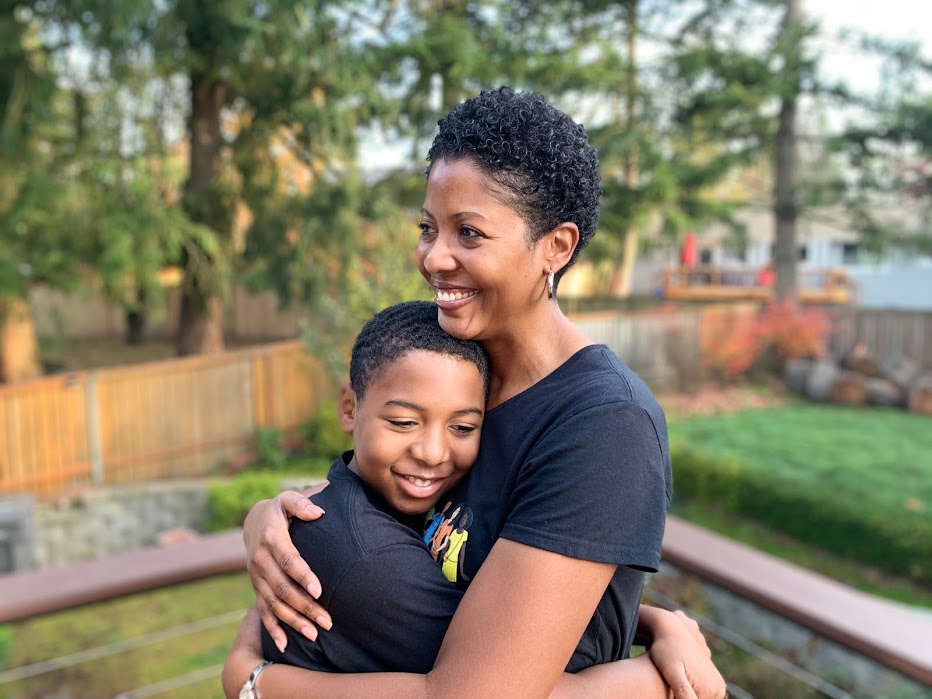
I was very disappointed and so confused. How could there be that many kids but none of them represent my child?! Especially in today’s age where kids arguably need more reassuring affirmations than ever?!
There had to be a solution.
To my disappointment, there was nothing readily available that had silhouettes of kids with textured hair.
I began brainstorming ideas on how to avoid this seclusion for other families like mine! What if I could create something that would have silhouettes that our kids could relate to as well as provide a positive movement in our community?
That’s when Kwanzaa and its principles came to mind. Then it hit me! What if I add Kwanzaa into what I am creating, what if each of the principles were a silhouette? Better yet, what if the principles were a kid and they were all friends?
From here, Kinara Park Kids was born. No longer will my children or any other child that looks like mine be outcasts. I am here to build unity in our community and find it my duty to fulfill this purpose.
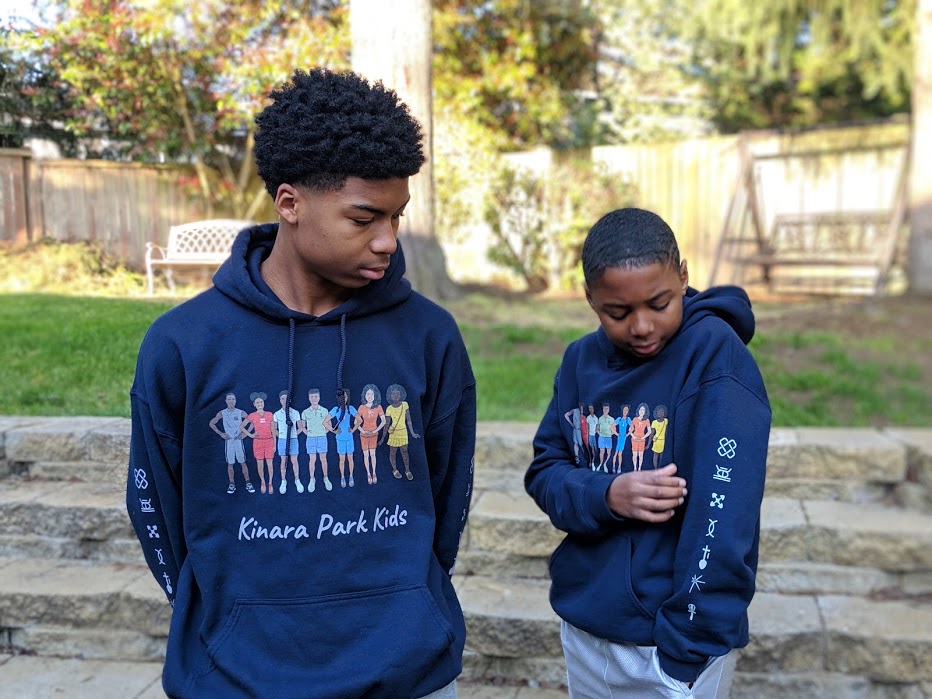
All of the Kwanzaa principles are important but which do you identify with the most? Why?
I love all of the principles, but I think I identify most with Ujima (Collective Work and Responsibility): To build and maintain our community together and make our brothers’ and sisters’ problems our problems and to solve them together.
The thing that affects one of us really does affect all of us. The work that Taraji P. Henson is doing through The Boris Lawrence Henson Foundation is in line with this. They are working to eradicate mental health stigmas in Black Communities. If we can take hold of different issues affecting one another, then we become our own source of strength. This is ujima and this is powerful!
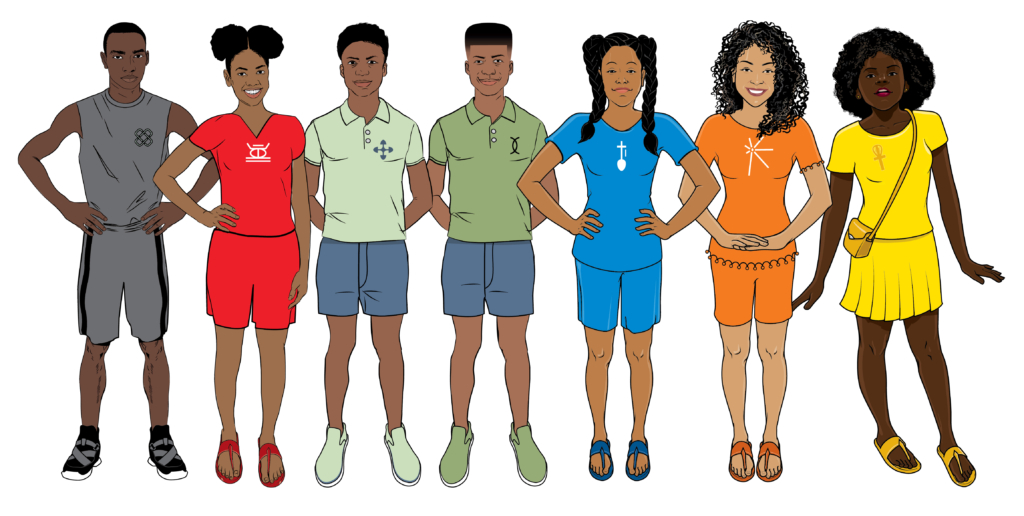
What has been the most fulfilling and the most challenging thing about being an entrepreneur?
The most fulfilling thing has been watching my two sons experience this journey. It is profound for them to be able to see something created or begin as a thought and then move through the many stages of becoming a tangible thing. They have seen me up late working on the various parts of this business, so they know it is not easy. I hope they are inspired to create solutions as they mature into young men.
The most challenging thing has been visibility. Kinara Park Kids brings value to our community in many ways, but that means nothing if no one knows we exist. We are grateful for the social media marketing firm that is helping change this (Parris Gray, CEO & Co-Founder of I Use DMP). Also, we are very excited about SHOPPE Black for an opportunity to make ourselves known in the marketplace!
What advice do you have for aspiring entrepreneurs?
You have to have some stick-with-it! Owning your own business is like farming versus landscaping–delayed gratification versus immediate gratification. For example, landscaping is when you see the weeds and overgrown lawn, get the lawnmower and weed wacker, and in a very short time, everything is neat and tidy and looks wonderful. Of course, it grows back, but not for a few weeks. When it does, you get out the lawnmower and weed wacker and repeat the process.
Being an entrepreneur means touching your business daily. It is waking up before the sun rises and going to bed after it sets. If you were on a farm, you would have to be mindful of seasons, weather patterns, critters, soil pH, seed quality, and timing for harvest.
For your business, this means being aware of all parts of your business, including product quality, scaling, branding, pricing, delivery, marketing, accounting, etc. I would tell aspiring entrepreneurs to make sure their “Why?” is big enough to last the full journey. If you’re going through the desert, you don’t take two water bottles. You will need to plan for time and obstacles. This owning-your-own-business stuff is not for the faint of heart. Brace yourself and get to work.
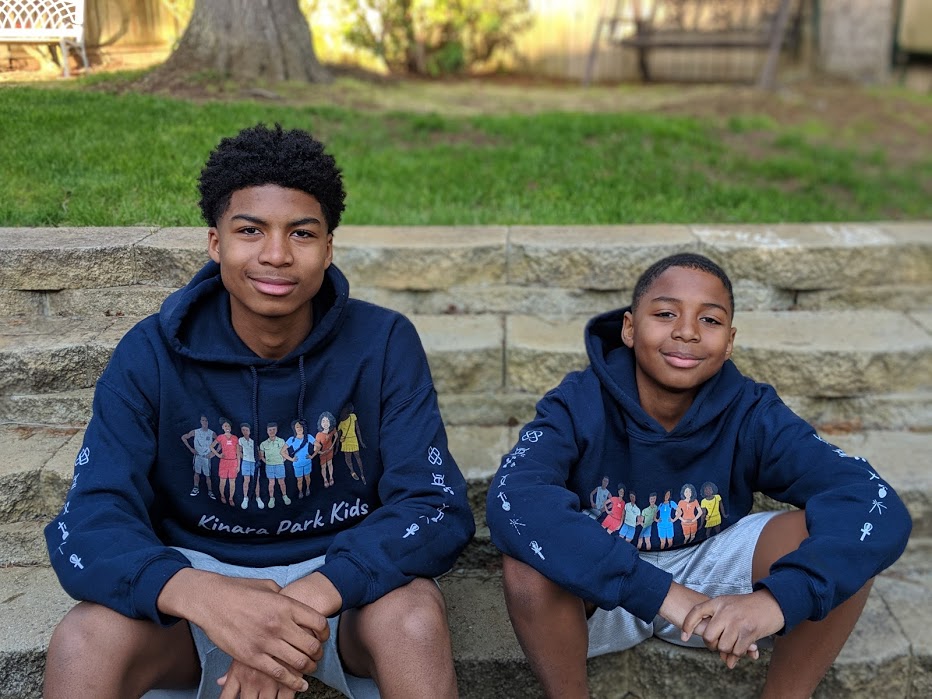
Where do you see the business 5 years from now?
In five years we are a household name. The outfits of each of the Kinara Park Kids is on clothing racks in Target and K&G. Elementary students will be at recess or on the playground and will pick teams by principles. It will be team Umoja and team Imani!!!
Kinara Park Kids is a billion dollar corporation. We practice cooperative economics which is to keep our dollars circulating within our community. When immigrants come to this country they typically have ties to their homeland, but African Americans do not have the privilege of those kind of resources.
Kinara Park Kids will be part of transforming that scenario. The money generated from sales is a point of capital distribution in our community–we are our own source of capital. We are like the elders in other communities that say, “We see you aspiring entrepreneur.
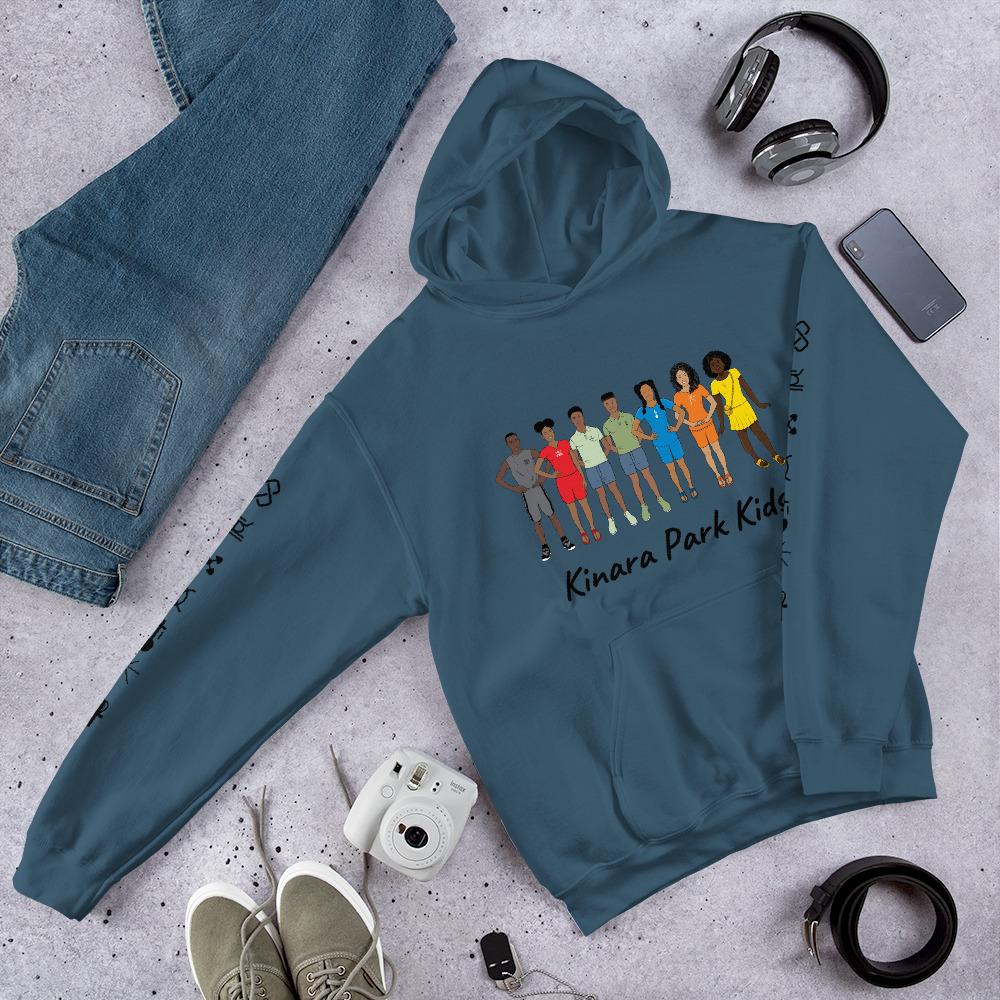
We have seen you grow up and we believe in you. We want to invest in you.” We infuse our community with capital and we are stronger. The revenue that is generated by Kinara Park Kids is a source of capital to further the start-up and growth of other Black-owned businesses.
Subscribe and Follow SHOPPE BLACK on Facebook, Instagram &Twitter

